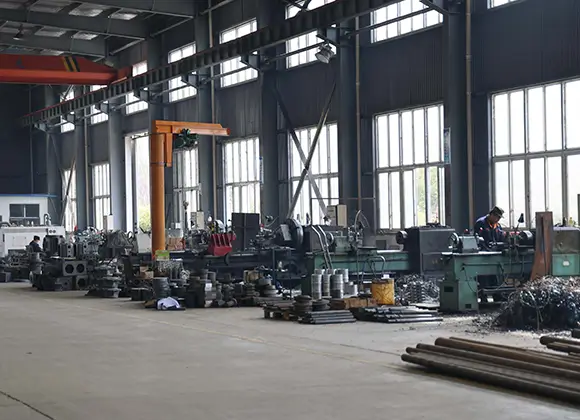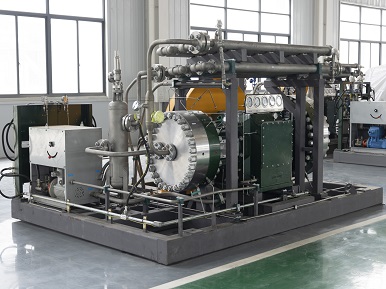

Hydrogen is the first element on the periodic table. It has one proton and one electron. Hydrogen bonds with many elements. These bonds make things like water and ammonia. There are different types of hydrogen called isotopes: protium, deuterium, and tritium. They have different numbers of neutrons.
Hydrogen is a gas that you can't see or smell. It's tasteless and not poisonous. It's the lightest element, so it floats easily. It has a lot of energy for its weight. Because it's small, it can leak out quickly. It's more explosive than natural gas, so be careful with it.
Industries use hydrogen in many ways. It's important for making ammonia for fertilizers. Refineries use it to turn crude oil into fuels. Rockets need hydrogen to fly into space. It also helps make methanol and other chemicals.
We use hydrogen in daily life too. Fuel cells use it to power cars with only water left over as waste. Some power plants store energy using hydrogen from wind or solar sources.
Our nose finds smells using the olfactory system. This includes both the nose and brain. Smell receptors in our nose catch scent molecules from the air. These receptors send messages to the brain. The brain understands these as different smells. Each smell has its own pattern that the brain knows.
Smelling is about finding chemicals. Molecules from things go into our nose. They stick to certain receptors there. This sticking sends a message to the brain. The brain figures out what it smells by looking at molecule shapes and sizes. Different molecules make different smells.
Concentration changes how strong a smell is. More concentration means more molecules are there, making a stronger smell. Less concentration makes a weaker smell. Our noses can notice some smells even when they are very weak.
The environment affects how we smell things too. Temperature changes can change how fast molecules move around us. Warm temperatures make them spread faster, making smells stronger. Humidity also matters; high humidity makes smells stronger too. Wind can blow scent molecules away, making them weaker.
Hydrogen is special with its own traits. It's colorless, odorless, tasteless, and safe to breathe. Pure hydrogen has no smell at all. This makes it different from other gases like natural gas, which smells because of added scents. Hydrogen doesn't have these scents, so it's hard to detect. Because hydrogen can catch fire easily, being careful is very important.
Hydrogen is like some other gases. Oxygen and nitrogen don't smell either. But hydrogen can catch fire more easily than others. It can burn in air from 4% to 75%. Gasoline and diesel have strong smells that help find leaks. Since hydrogen doesn't smell, we need special tools to find it safely.
People think about smells with certain things. Hydrogen doesn’t make our noses react without extra scents added. This makes finding hydrogen tricky without tools. Devices help us know if there's a leak since we can't smell it naturally.
Some people wrongly think hydrogen smells. They mix it up with other smelly gases like hydrogen sulfide, which smells bad like rotten eggs but isn't the same as pure hydrogen. Knowing how they differ helps clear up mistakes.
Smell helpers find hydrogen leaks. Pure hydrogen has no odor. Adding these makes it easier to notice. This helps keep things safe. People can spot leaks fast and act.
Detection tools are very important. Sensors and alarms find hydrogen. These tools warn you about leaks. MSA, a safety leader, stresses good detection. Groups should work with experts for advice.
Industries have strict rules for hydrogen safety. The National Fire Protection Association works with others. They make rules for hydrogen systems. Rules help handle and store safely. Following them lowers risks in factories.
Home safety needs care with hydrogen. Make sure areas have good airflow when using it. Install detectors to check gas levels. Check equipment often to stop leaks. Teach family about staying safe with hydrogen.

Hydrogen is found in the air. It is hard to find because there isn't much of it. Scientists study how hydrogen mixes with gases like methane. These mixes can change weather patterns.
Some living things make hydrogen. Tiny organisms in dirt and water let out hydrogen when they break down stuff. Plants also help make hydrogen. Learning about these helps scientists understand nature's hydrogen cycle.
Hydrogen affects ecosystems in many ways. It takes part in reactions that keep life going. Hydrogen keeps balance in water and land environments. Scientists study how it helps different species live together.
Hydrogen affects climate change too. Green hydrogen can cut down harmful gases. Studies show it can lower methane if used right. Green energy makes green hydrogen, helping stop climate problems by 2050. Keeping hydrogen safe is important for research.

Fuel cells make electricity with hydrogen. They only produce water as waste. Buses, trucks, and trains use them. These vehicles don't release bad gases. Countries want to cut carbon emissions. Hydrogen fuel cells are cleaner than diesel engines. They also power faraway places where usual power can't go.
Hydrogen stores energy well. Wind and solar make electricity first. Extra energy turns into hydrogen to save it. Later, hydrogen changes back to electricity when needed. This keeps power steady. Storing energy with hydrogen helps the grid stay stable. It meets high energy needs at busy times.
Hydrogen is key in renewable energy plans. Green hydrogen uses renewable sources to be made. It cuts down on using fossil fuels. Green hydrogen helps meet global clean energy goals. Many countries aim for sustainable energy changes.
Tech improvements boost how we use hydrogen. Research aims to make it safer and better. New ways improve making and storing hydrogen. Innovations lower costs and make it easier to get. Hydrogen tech is growing fast, promising cleaner energy soon.
Scientists found hydrogen in the late 1700s. Henry Cavendish named it a separate element in 1766. Early tests showed hydrogen could lift balloons. Its lightness helped with air travel. Hydrogen's chemistry role became clear as scientists learned more.
Industries started using hydrogen in the 1900s. It was key for making fertilizers from ammonia. Fuel refining used hydrogen to work better. Rockets needed hydrogen for space trips. Making chemicals also used hydrogen's flexibility.
Many myths exist about hydrogen. Some think it's dangerous due to past events. But, it's safe if handled right. People often mix up hydrogen with smelly hydrogen sulfide. Teaching people helps clear these myths.
People are learning more about hydrogen now. They see its use in clean energy. Governments support it as a green fuel option. Schools teach about it in science classes. More knowledge leads to smarter choices on using hydrogen.
Industries use hydrogen a lot. Safety steps help find leaks. Odorants added to hydrogen make it easier to smell. Workers can quickly spot leaks with these scents. Industries follow strict rules for safe handling of hydrogen. Regular checks ensure equipment is okay. Training teaches workers about safety with hydrogen.
Knowing about hydrogen smell stops accidents. Quick leak detection cuts risks. Industries save money by avoiding damage from hidden leaks. Good safety systems build trust with workers and the public. Adding odorants makes workplaces safer. This helps keep industries safe.
Scientists study hydrogen for better safety. They look at how scents help find leaks. New tech is explored for better leak finding. Research aims to create better odorants. These studies try to make using hydrogen safer everywhere.
Future research will boost hydrogen safety more. Scientists plan tests on new sensors for finding leaks. New materials might improve how scents work with hydrogen. The goal is safer places for using hydrogen. Ongoing research will keep improving technology.
Hydrogen is special in how it feels to our senses. It has no color, smell, or taste. Knowing these traits helps keep us safe when using it. Hydrogen is important in science and tech. It helps make things like alcohols and acids. Because it can catch fire easily, we must be careful with it. Since hydrogen doesn't naturally smell, finding leaks is hard. Adding scents makes it safer to use. Hydrogen's role in clean energy and new tech is big. Learning about hydrogen can lead to smart ideas for future energy needs.




